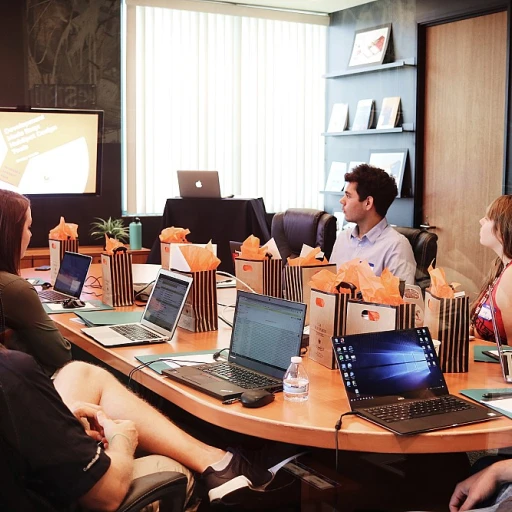The Evolution of Global Mobility in HR Tech
The Journey of Global Mobility in HR Tech
The concept of global mobility in the context of HR technology has evolved dramatically over the past few decades. This evolution hasn't just been about changing job markets or emerging tech; it's about how companies adapt to a world where the ability for an employee to move seamlessly across borders is a valuable asset. In the early days of global mobility, the focus was primarily on supporting high-level executive assignments. Companies typically offered a few standardized packages with little flexibility based on position or destination. Fast forward to today, mobility compensation packages have become more nuanced, often reflecting a balance sheet approach that considers the cost of living in the host country, taxes, and other financial components of international assignments. Today, companies recognize the strategic advantage of developing a robust global mobility policy. They invest in relocation packages that align with their long-term corporate relocation goals. Notably, the rise of remote work has also added a layer of complexity and opportunity. The traditional lines of what constitutes an expatriate assignment have blurred, with more employees conducting work from the host location remotely or balancing short-term assignments with technological support. Furthermore, the introduction of digital tools and platforms has transformed how companies manage global mobility. From managing relocation logistics to integrating shadow payroll into the host country’s tax systems, technology facilitates the administration and execution of intricate mobility compensation packages. For those seeking further insights on how technology enables businesses to succeed in the modern workplace, exploring free open-source software for call center quality assurance provides a relevant example of innovative tech applications in workforce management. This knowledge not only equips mobility specialists with the tools to optimize employee relocation but also paves the way for a future where global work opportunities are more accessible and advantageous.Key Components of Global Mobility Compensation Packages
Breaking Down the Components
When it comes to crafting effective global mobility compensation packages, understanding the key components is crucial. These packages are not just about salaries but encompass a range of elements designed to ensure that employees are adequately compensated and supported during their international assignments.
Salary and Benefits
At the core of any mobility package is the salary. Companies often adjust the base salary to reflect the cost of living in the host country. This adjustment ensures that employees can maintain their standard of living while abroad. In addition to salary, benefits such as health insurance, retirement contributions, and educational allowances for children are often included.
Relocation and Housing
Relocation packages typically cover the costs associated with moving to a new country. This can include shipping household goods, temporary housing, and even assistance in finding permanent accommodation. Housing allowances are a common feature, helping employees afford suitable living arrangements in the host location.
Tax Considerations
International assignments bring complex tax implications. Companies often provide tax equalization or protection policies to ensure that employees are not adversely affected by higher tax rates in the host country. This involves a thorough analysis of both home and host country tax obligations, sometimes managed through a shadow payroll system.
Cost of Living Adjustments
Cost of living adjustments (COLA) are critical in ensuring that employees can maintain their lifestyle in a new country. These adjustments account for differences in prices for goods and services between the home and host countries, ensuring that employees are neither overcompensated nor undercompensated.
Additional Allowances
Mobility compensation packages may also include additional allowances for hardship, mobility, and remote work. These are designed to address challenges specific to the host country or the nature of the assignment. For instance, a hardship allowance might be offered for assignments in locations with difficult living conditions.
Understanding these components is essential for HR professionals and mobility specialists tasked with designing effective compensation packages. For more insights into the nuances of global compensation, consider exploring the role of a pay equity consultant in ensuring fair and equitable pay practices across international assignments.
Technology's Role in Streamlining Global Mobility
The Technological Bridge in Managing Mobility
In the dynamic sphere of global mobility, technology serves as the bridge that seamlessly connects the myriad components involved in international assignment management. As companies increasingly embrace globalization, the need to efficiently orchestrate global mobility compensation packages becomes imperative. Technological solutions today offer comprehensive automation capabilities that streamline various aspects of mobility, ranging from payroll and tax management to relocation logistics. Platforms tailored for mobility compensation enable companies to automate shadow payroll processes and ensure that employees receive accurate pay irrespective of their location. They are designed to adapt to the different tax laws and compensation structures across host countries, mitigating compliance risks for both the company and the employee. Moreover, technology helps enhance the transparency and reliability of corporate relocation by utilizing data analytics to estimate cost-of-living differences between home and host locations. This is crucial for crafting competitive compensation packages that maintain the employee's standard of living while abroad. A critical advancement is the integration of technology in developing and managing a balance sheet approach for long-term and short-term assignments. This allows mobility specialists to model and simulate various compensation scenarios, ensuring that assignments are financially viable and aligned with the company's total rewards strategy. Corporate mobility platforms also play a pivotal role in enhancing the employee experience during their relocation. For instance, HR tech tools can regularly update employees about their relocation package details and facilitate a smoother transition to their host country by providing culturally relevant information and support. What's more, as the trend of remote work continues to rise, technology's role in facilitating international mobility is evolving. Systems that track global payrolls and monitor employee living standards allow companies to effectively manage remote work arrangements across borders, ensuring employees remain connected and valued regardless of their geographic location. For companies navigating the complex landscape of global mobility and compensation, leveraging the right technological solutions can lead to more effective and efficient workforce management. More insights on using tech to enhance workforce management can be explored in this detailed analysis on enhancing workforce management with frontline tracking.Challenges in Designing Effective Compensation Packages
Complexities in Structuring Global Mobility Compensation
Designing effective global mobility compensation packages presents numerous challenges that human resources professionals and mobility specialists must navigate. These complexities often arise from the diverse nature of international assignments, varying cost of living across host locations, and the intricate balance between employee satisfaction and company budget constraints.Compensation packages must consider not only the direct costs like salary and benefits, but also additional elements such as tax equalization, relocation expenses, and housing allowances. The host country's cost of living can greatly impact an employee's overall satisfaction and performance during their assignment. For instance, a high-cost city might require supplementary housing or cost of living adjustments to ensure the employee's pay remains competitive and fair.
Corporate relocation efforts also demand careful management of shadow payroll and tax compliance. Companies face the challenge of maintaining both accurate payroll records in the host country and ensuring compliance with international tax regulations. This dual management can be complex, as tax laws can differ vastly between jurisdictions, raising the need for specialized knowledge and expertise.
Additionally, there's the added complexity of managing remote work requests or short-term assignments. Offering flexibility in mobility policies to accommodate different assignment durations without jeopardizing compensation fairness can be tough. Moreover, balancing incentives between expatriates and locally-hired employees, potentially working side-by-side, requires thoughtful adjustments to the total rewards strategy.
Ultimately, striking the right balance in global mobility compensation packages is no easy feat. It involves a delicate synergy of understanding individual and company needs, coupled with an in-depth comprehension of international mobility intricacies. Consistent re-evaluation and adaptation to evolving global norms and economic landscapes are essential for the successful implementation and sustainability of these programs.
Case Studies: Successful Implementation of Mobility Packages
Real-World Successes in Mobility Compensation
In today's dynamic business landscape, companies across the globe are recognizing the necessity of efficient global mobility programs. One of the critical components contributing to their success is a well-structured compensation package tailored to international assignments. Let's dive into some real-world case studies that demonstrate successful implementation. For instance, a large multinational company operating in the technology sector revamped their global mobility compensation strategy to address the unique challenges faced by employees in different host countries. By closely evaluating the cost of living, salary expectations, and tax implications, the company was able to offer a balanced relocation package that included a mix of host location salary adjustments, additional benefits, and tax equalization. Furthermore, a financial services corporation took a novel approach by incorporating long-term incentives into their compensation packages. This strategy not only aligned with their mobility policy but also played a crucial role in enhancing employee retention rates amidst constant international relocations. The use of shadow payroll systems ensured compliance with host country's payroll regulations while optimizing cost efficiency. Another compelling example is a global consumer goods company that developed a comprehensive relocation package focusing on both immediate and long-term rewards. By including family support services, cultural integration programs, and remote work options, they addressed the diverse needs of employees and their families during international assignments. This holistic approach resulted in increased job satisfaction and productivity. These cases emphasize the importance of tailoring compensation packages to suit the diverse requirements of assignments and employees. By adopting a strategic approach, companies not only enhance their global mobility efficiency but also ensure their employees receive fair compensation for their international work.Future Trends in Global Mobility and Compensation
A New Horizon for Global Mobility
The landscape of global mobility is constantly evolving, driven by shifts in technology, economic conditions, and workforce preferences. As companies continue to expand their international reach, understanding future trends is crucial for staying competitive in attracting and retaining talent. The development of comprehensive global compensation packages is essential for facilitating international assignments effectively.
Remote Work and Its Impact on Mobility
One of the major shifts impacting global mobility is the rise of remote work. Employees and employers are increasingly recognizing the benefits of work-from-anywhere policies. For mobility specialists, this presents an opportunity to reevaluate the traditional structure of global mobility programs. Companies are focusing more on flexible compensation packages that can accommodate employees working remotely from different regions or countries. This flexibility needs to balance tax implications and cost of living adjustments in varying host locations.
Technology-Driven Mobility Solutions
Advancements in technology, including AI and data analytics, are streamlining global mobility processes. These technologies assist in customizing compensation packages to better suit individual employee needs while ensuring compliance with local payroll, benefits, and tax regulations. Additionally, technology facilitates transparency, offering employees detailed breakdowns of their relocation packages and total rewards, ensuring employees feel valued and informed about their international assignments.
Focusing on Employee Experience
As global mobility continues to evolve, there’s a growing emphasis on enhancing the employee experience. Companies are not only looking at the financial compensation but also at how they can support employees transitioning to international assignments both professionally and personally. This includes providing resources for helping employees adapt to new cultures and work environments in the host country, ensuring a smooth relocation process.
Cost Management and Sustainability
Another key trend is the focus on cost management and sustainability in global mobility programs. Companies are becoming more conscious of the costs associated with international assignments, from relocation expenses to differential pay adjustments accounting for variations in living costs. By implementing sustainable policies, firms aim to manage and optimize the costs while still providing competitive compensation that motivates and retains top talent.
In conclusion, to successfully navigate the future of global mobility, companies must develop adaptable, technology-driven, and employee-centric approaches to compensation. Emphasizing flexibility and support for remote work, grounded in a strong understanding of global payroll, taxes, and benefits regulations, will be crucial for future success.








